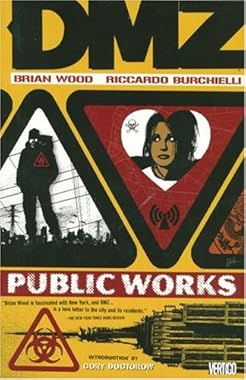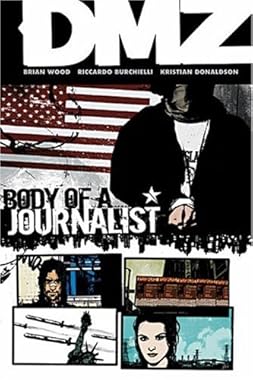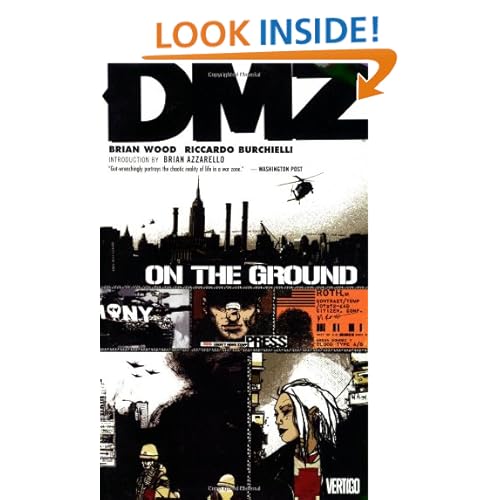
DMZ Vol. 4 - Friendly Fire
By Brian Wood, Riccardo Burchielli
And so we come to the fourth volume of Brian Wood’s critically-acclaimed series set in a New York City torn apart by the second American Civil War.
As I mentioned when I started the series, DMZ is a concept rife with unrealized potential, a fantastic premise marred by little niggles that add up.
But it gets better. Stories like this one are a part of the reason why.
This volume deals with what appears to be an unprovoked massacre of civilians by U.S. soldiers. But was it?
Wood seems to be hitting his stride here. Strong story well told, some good characterization, and delving into politics without being heavy-handed about X belief being Wrong and Y belief being Right. That last part is pretty huge, because this entire SERIES is really just an excuse for him to explore political issues and offer entertainment-based commentary on America's adventures overseas. That's a tough tightrope to walk. Too heavy-handed and you run the risk of alienating readers and letting your message get in the way of the story, too soft a touch and you sap the impact from the hot-button issues you're tackling.
Here, he strikes a great balance.
The cause of the civilian massacre at the root of the story is left ambiguous, and while we don't root for the military figures (no surprise there, given the tone of this book), we're not entirely sure they weren't justified in seeing danger. Wood trusts the reader to fill in the blanks. Presented this way, our own biases can allow different people to see the story in markedly different ways. That is, in my opinion, a positive.
The art is a big step up here, too ... of course, I'm talking about a fill-in artist rather than the series regular, so maybe saying the art took a step up is an insult. But it's true, I like the fill-in artist far more than the main artist. Like, a lot more.
The truth is, I began to grow weary of DMZ by the third volume. I though about bailing out on the series, about cutting my losses and walking away, but you know what? This won me over. I'll stick around. I'll keep reading. Maybe -- hopefully -- things continue on their upward path and we see DMZ become what I think it can be. Something awesome.
An earlier version of this review was originally posted at IMWAN.com and was also featured at Popthought.com.
Read my regular, everything-and-anything (usually on writing and music) blog right over here.







